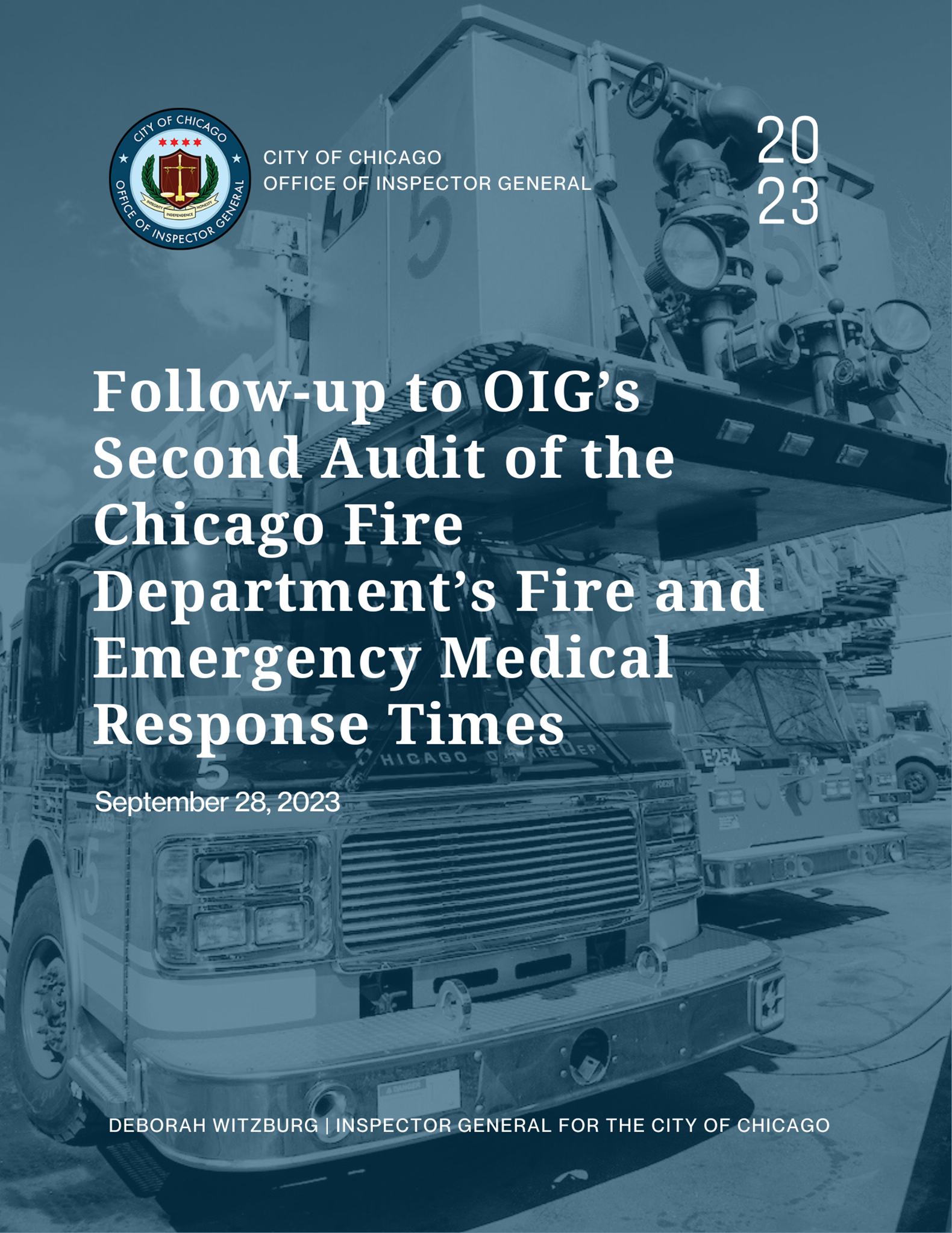Follow-up to OIG’s Second Audit of the Chicago Fire Department’s Fire and Emergency Medical Response Times
Summary
The City of Chicago Office of Inspector General has completed a follow-up to its October 2021 second audit of the Chicago Fire Department’s response times to calls for emergency fire and medical services. Based on the Department’s responses, OIG concludes that CFD has not implemented corrective actions related to the audit findings.
Executive Summary
The purpose of the 2021 audit was to determine whether CFD had goals for fire and emergency medical services (EMS) response times consistent with state and national standards and whether CFD response times met those standards. OIG concluded that CFD had not implemented performance management strategies that would allow it to evaluate fire and EMS response times in alignment with best practices, nor had the Department remedied data issues identified by OIG in 2013.
Based on the results of the 2021 audit, OIG recommended that CFD management,
- acknowledge the importance of department-wide quantitative performance measures and begin public annual reporting on its response time performance;
- establish and document department-wide turnout, travel, and total response time goals at the 90th percentile for both fire and EMS; or, if they believed National Fire Prevention Association (NFPA) recommended turnout and travel times were unachievable in Chicago, conduct a systematic evaluation of local factors affecting response times and set reasonable goals for turnout, travel, and total response times accordingly;
- identify, monitor, and remedy the cause of gaps in its data;
- consider hiring an internal data specialist to improve data quality; and
- ensure that any external partners it engages to analyze departmental data conduct a full assessment of that data’s completeness and reliability.
In its response to the audit, CFD “acknowledge[d] the importance of department-wide quantitative performance measures” and described corrective actions it would take.
In April 2023, OIG inquired about corrective actions taken by CFD in response to the audit. Based on CFD’s follow-up response, OIG concludes that CFD has not implemented corrective actions. Notably, CFD has neither hired staff to assist with data analytics nor found another method to analyze data gaps. CFD has not worked with the Office of Emergency Management and Communications (OEMC) to assess the root causes of data gaps.
Finally, CFD has not employed an after-action reporting and improvement planning mechanism to improve data quality. CFD attributed failures to implement corrective actions to the COVID-19 pandemic and budget shortfalls.
Subscribe to the OIG Bulletin to get notified about future publications.

